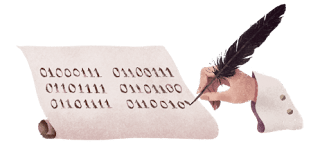By G. E. Shuman
In this column, I would like to discuss the very serious topic of potato salad. It may not seem like much of an issue to you or me, but it’s a big deal to a potato. After all, many lowly spuds, each year, give their very lives for the privilege of being included in this summertime picnic/barbecue/cookout/pig roast/ favorite. Truly, no self-respecting picnic table would dare show its face, (if it had one,) without offering picnickers at least one version of a potato salad, or as it is called in one language ‘baa-DA-da” salad. I’m not sure what language that is, but I’m pretty sure I heard that word somewhere in the South.
I will admit that for some people, potato salad, (as we call it here in the North) is an acquired taste. For my family, it’s always just been a part of summer, and such salads are as individual as the person who made them, or at least as individual as the places they came from. It’s true. German potato salad is great. The Germans have produced some wonderful inventions in the past, including both potato salad and my antique VW beetle. I’m not sure what else they have done, but those two things are cool. Then, American potato salad is as much a melting pot experience as Americans are themselves, and I’m convinced that almost any food that could fit into a mixing bowl has, at one time or another, wound up in someone’s potato salad.
My salad is very well known all over (my house,) as yours probably is, all over yours. In fact, it’s hard to make potato salad without getting it all over. My salad has a few variations, depending on how ‘spicy’ I’m feeling when I make it. (Wow, you’re thinking… he gets excited over potato salad. He must be a blast at parties!) Anyway, my recipe always includes about a five-pound bag of potatoes, (big surprise), and I also put in about a half dozen hard-boiled eggs. Notice the word ‘about’ in the last sentence. My theory is that when it comes to my version of potato salad, part of the secret is the great, wandering impreciseness of it all. The potatoes are cut into smallish cubes and boiled, and the eggs are chopped up. They have also had their shells removed. I’ve found that the salad is easier to swallow that way. I also include chopped onions or scallions, a cut up cucumber, a squirt of mustard, (Check your measuring chart to establish just how much a squirt is.) garlic salt, and the all-important completely un-measured heaping mound of mayonnaise. (See how I slid two hyphens into that one sentence there?) Also, remember, it’s mayonnaise. That stuff called salad dressing is not for dressing a salad. I’m not sure what it’s for.
I’m sure your potato salad is different from mine, and that’s a good thing. After all, your potato salad is your picnic fingerprint, and if your young kids like your salad, you get to have spud salad fingerprints all over your car windows on the drive home. Aren’t those little ones so precious?
I thought through all of this important stuff about the VERY important topic of potato salad today, because my wife asked me to put one together for her to take to her ladies’ Bible study meeting tomorrow morning. They’re doing a Christmas in July party at the meeting, so, being Christmas and all, of course, they wanted potato salad. Huh? I made the salad this afternoon and put it in the fridge to cool overnight. As I made it I prided myself that I had finally figured out what those ladies actually do at those meetings. I guess there are worse things they could be up to than sitting around studying the Bible and eating my potato salad.

